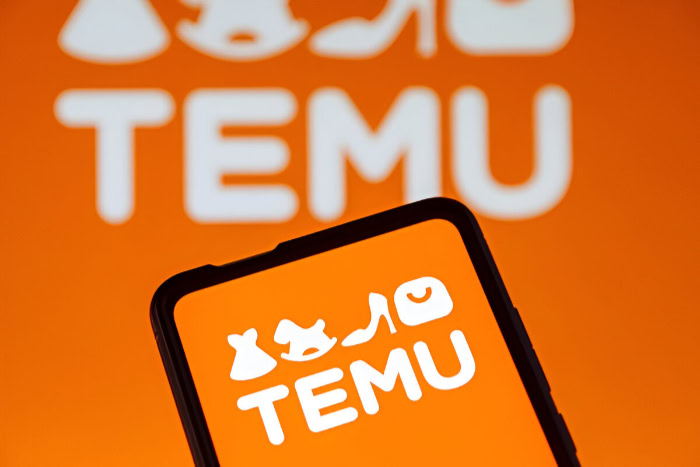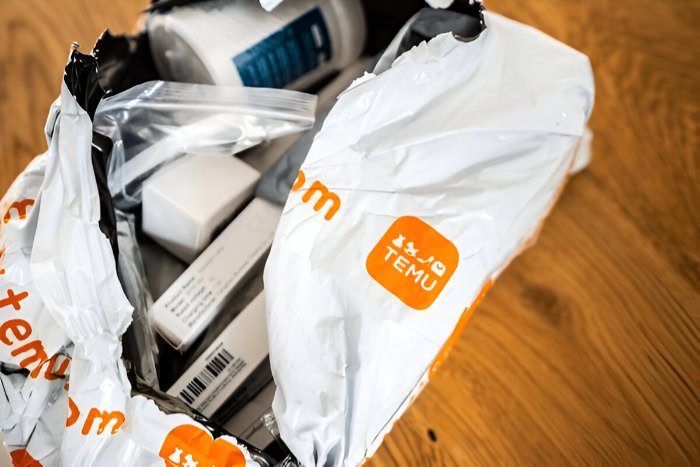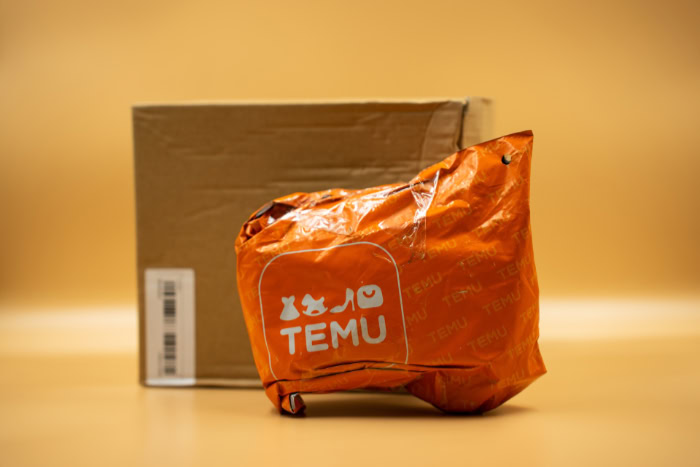Is Temu Legit? The Real Costs Behind the Low Prices

Temu has exploded onto the online shopping scene with promises of shockingly low prices and an endless variety of items shipped straight to your door. Social feeds buzz with viral hauls and tempting deals, yet many shoppers can’t help but wonder, “Is Temu too good to be true?” Concerns about counterfeit products, data privacy, and labor ethics swirl around the platform, leaving potential buyers torn between a bargain and a potential risk.
As millions flock to try this bargain hotspot, it’s worth looking past the flashy discounts to see what’s really behind Temu’s rapid rise.
Corporate Legitimacy and Business Operations
As Temu continues to attract shoppers with its budget-friendly deals, questions about the company’s legitimacy naturally surface. A closer inspection of Temu’s background, regulatory standing, and efforts to prevent scams can help clarify what buyers can expect when dealing with this fast-growing e-commerce platform.
Ownership and Licensing
Temu operates as a subsidiary of PDD Holdings, a major Chinese multinational that also owns Pinduoduo, one of the world’s largest e-commerce platforms. PDD Holdings is publicly traded on the Nasdaq, which provides an additional layer of financial scrutiny and transparency uncommon among newer shopping platforms.
The fact that PDD Holdings is subject to public market regulations offers some initial assurance; investors and regulators regularly review the company’s financial and legal health.
From a regulatory standpoint, Temu has made efforts to comply with trade and consumer protection laws in the United States, the European Union, and several Asian countries. The app and website are built to adhere to basic e-commerce standards, facilitating secure transactions and offering buyer protections in line with local regulations.
However, regulatory oversight can vary by country, and some markets have raised concerns about how strictly Temu follows local business and tax rules.
Scam Prevention Measures
With any rapidly growing marketplace, the risk of scams becomes a pressing concern. Temu attempts to combat fraudulent activity by using verified seller badges for some merchants, helping buyers identify more reliable vendors.
Nevertheless, the platform faces ongoing challenges in preventing the sale of counterfeit or low-quality products, especially since many sellers are based abroad and operate semi-anonymously.
Fraud tactics such as phishing emails, lookalike websites, and fake order updates occasionally target Temu’s growing user base. In response, the company provides guidance on spotting suspicious emails and encourages users to make purchases directly through the official app or website.
Customer service teams are available to address reports of fraud, but the platform’s sheer size and popularity mean that not every issue receives immediate resolution.
Operational Transparency
Transparency in business operations remains an area where Temu draws mixed reviews. Unlike many established online retailers, Temu lacks accreditation from the Better Business Bureau (BBB), and unresolved user complaints can often be found on consumer forums and social media.
Shoppers sometimes express frustration with slow communication, missing orders, or unclear refund processes.
Seller vetting is another area where improvement is needed. While Temu claims to monitor and approve vendors, details about the criteria and process remain vague.
The supply chain itself is also difficult to trace, as many products are shipped directly from overseas factories with minimal information about sourcing or manufacturing ethics. This opacity can make it challenging for buyers to know who produced their items or under what conditions.
Product Quality and Consumer Experience

Shopping on Temu offers an enticing mix of affordability and variety, but buyers soon notice that ultra-low prices can come with certain compromises. Individual experiences range from impressive bargains to disappointing purchases, sparking plenty of debate about quality, authenticity, and after-sales support.
Authenticity Concerns
Many listings on Temu feature generic or unbranded merchandise. The appeal of scoring trendy gadgets, home goods, or beauty products for just a few dollars often overshadows lingering doubts about product legitimacy.
Name-brand items are the exception rather than the rule, with most products labeled by obscure or unfamiliar manufacturers.
Certain categories, such as electronics and cosmetics, pose a higher risk for counterfeits or substandard goods. Shoppers might encounter makeup kits that closely mimic popular brands or electronics that bear suspiciously similar designs but lack proper certifications or safety marks.
Without reliable brand verification, shoppers shoulder the burden of judging authenticity based mainly on reviews and product photos, which do not always paint an accurate picture.
Quality Consistency
Buyers often find that quality varies significantly from one item to another. Some shoppers are delighted to receive clothing, gadgets, or home essentials that outperform their expectations for the price.
Others report frustration with items that arrive damaged, poorly finished, or made from flimsy materials.
One common challenge involves sizing, especially for apparel and footwear. Measurements often differ from Western standards, turning online shopping into a bit of a gamble.
Reports of material defects, such as unraveling seams, fading colors, or weak zippers, surface regularly in customer reviews. For every satisfied customer, another shares a story about an item that looked great online but ended up disappointing upon arrival.
This hit-or-miss reality makes it important to read user feedback and examine product images closely for anyone hoping to minimize the risk of a bad buy.
Shipping and Returns
Bargain shoppers usually expect to wait longer for their orders to arrive, and Temu is no exception. Average delivery times typically stretch from 10 to 21 days, as most items are shipped directly from overseas warehouses.
Shipping delays can occur, especially during sales or holiday periods, and tracking updates may lag behind actual package movements.
Returning unwanted or defective goods can be more challenging than on many domestic platforms. While Temu advertises a return policy, customers sometimes face hurdles such as restocking fees, strict return windows, or lengthy refund processes.
Some buyers express confusion over the steps required to initiate a return or dissatisfaction with customer service responses. The process works for many, but patience and persistence are occasionally needed to resolve post-purchase issues.
Data Privacy and Security Risks

Shopping online often means sharing personal data, but the level of information collected by some platforms can surprise even savvy users. Temu, like many popular apps, has prompted concerns about how much data it collects, what it does with that information, and how securely it is stored.
Data Collection Practices
Temu’s app frequently requests broad permissions that extend far beyond basic shopping functions. Grizzly Research notes that the app prompts for access to the camera, microphone, and even location data, which raises eyebrows among those who value digital privacy.
Permission requests may be framed as helpful features, like photo uploads or voice searches, but often feel excessive given the app’s core purpose.
Cybersecurity Findings
Grizzly Research has raised a series of red flags about Temu, alleging that the app operates like malware or spyware and captures more than just basic account information. Concerns often focus on the app’s background processes, which may run even when the app is not actively being used.
Critics question whether such behavior is necessary for shopping, or if it points to more intrusive data harvesting.
User Control Measures
Shoppers have tools at their disposal to control how much data Temu is allowed to collect. Device settings for both Android and iOS platforms let users restrict app permissions, blocking access to the camera, microphone, or contacts unless absolutely necessary.
Regularly reviewing these permissions can help minimize exposure and prevent unwanted data collection.
Comparisons to other giant retailers such as Amazon or Shein reveal that data collection is a broader industry issue, not just limited to Temu. Most e-commerce platforms gather data for optimization and marketing, but Temu’s requests stand out as particularly aggressive.
Transparency, ease of opting out, and the level of control given to users differ from one app to another, so shoppers should remain alert and review privacy policies before sharing sensitive information.
Ethical and Legal Controversies

Rapid global expansion often brings growing pains, and Temu is no exception. Shoppers searching for deals may not always realize the broader ethical and legal debates swirling around the platform.
Issues tied to labor practices, tax strategies, and geopolitical tensions frequently cast a shadow over Temu’s low prices and popularity.
Labor Practices
Concerns about factory conditions and labor rights are never far from the surface in global e-commerce. Allegations have surfaced that some Temu suppliers may use forced labor or operate under questionable labor standards, particularly in regions with less regulatory oversight.
Although Temu touts a supplier code of conduct promoting fair labor standards, critics argue that enforcing these rules in a vast, distributed supplier network remains a significant challenge.
Verification programs and contract agreements are designed to prevent exploitation and unsafe work environments. However, doubts remain about how rigorously Temu audits suppliers or what consequences exist for violations.
When transparency is limited, assurances in codes of conduct ring hollow for shoppers who care deeply about ethical sourcing.
Tax Avoidance Strategies
Another controversy involves Temu’s approach to cross-border shipping and import duties. The platform takes advantage of what’s known as the de minimis loophole, a rule allowing most packages valued under a specific threshold to enter countries like the United States without incurring customs duties or taxes.
This strategy not only enables lower prices for consumers but also gives Temu a cost advantage over domestic retailers.
U.S. lawmakers have noticed this pattern and have begun discussing policy changes that could close or limit the use of the de minimis loophole for foreign e-commerce shipments. Calls for stricter customs enforcement reflect widespread frustration over lost tax revenues and uneven competition with local businesses.
Temu’s business model faces an uncertain future as regulatory landscapes evolve.
Geopolitical Challenges
International licensing and regulatory requirements have posed direct challenges to Temu’s operations. Several countries, including Indonesia and Vietnam, have imposed bans or temporary suspensions citing licensing irregularities or non-compliance with local trade law.
Each ban reflects growing scrutiny of foreign e-commerce giants and the need for greater adherence to domestic rules.
Tensions between China and the United States further complicate Temu’s ability to operate smoothly in key markets. Shifting trade policies, increased tariffs, and political disputes can disrupt supply chains, slow down shipping, or even prompt government investigations.
The company must navigate a climate where rapid growth is often matched by equally swift regulatory and diplomatic obstacles.
Ethical, legal, and geopolitical challenges continue to shape the debate around Temu’s legitimacy. The company’s ability to address these issues will likely influence its reputation and staying power on the global stage.
Cost vs. Risk

Temu’s surge in popularity owes much to ultra-low prices and frequent flash sales, making it a favorite for bargain hunters worldwide. Still, the question lingers: what trade-offs do those low prices really require? Shoppers are left weighing the promise of savings against risks that range from product quality to privacy and the long-term future of the platform itself.
Pricing Model Sustainability
Temu’s aggressive pricing relies on cutting out middlemen and shipping products directly from factories, passing those savings to customers. Many shoppers celebrate the bargains, but quality compromises often come as part of the package.
Product inconsistencies, risk of counterfeits, and longer delivery times sometimes offset the initial excitement over deals.
The Conversation has voiced concerns that Temu’s low prices may be less about operational efficiency and more about “buying market share.” Hefty subsidies and marketing blitzes attract users, raising doubts about whether such heavy discounting can continue indefinitely.
Loss-leading strategies can gain traction quickly, but long-term sustainability hinges on converting bargain seekers into loyal, repeat customers.
Consumer Trade-Offs
Price takes center stage for many Temu users. Shoppers attracted by the promise of significant savings may find themselves accepting risks they would avoid on other platforms.
Counterfeit goods, privacy concerns, and unpredictable product quality become part of the cost equation for those drawn to rock-bottom prices.
Temu appeals strongly to budget-conscious buyers who value variety and affordability over brand reputation or premium quality. On the other hand, shoppers with a preference for established brands and consistent standards may find the platform less appealing.
Deciding to shop with Temu often involves a personal calculation about how much risk one is willing to take in exchange for a deal.
Long-Term Viability
Temu’s business model faces significant challenges as it continues to expand. Sustaining widespread discounts while paying for global shipping, customer support, and regulatory compliance places pressure on profitability.
Investors are watching closely, with some expressing skepticism about how long the current approach can last before price increases or service reductions creep in.
Regulatory crackdowns also loom as a risk, with governments scrutinizing trade practices, data privacy, and tax compliance. Changes in customs laws or mounting political tensions could curtail Temu’s ability to operate freely in certain markets.
As more consumers flock to the platform, questions about oversaturation and quality control may also surface, raising the stakes for Temu’s future.
For now, Temu’s appeal lies in its ability to deliver unprecedented bargains, but shoppers are wise to factor in the broader risks that might be bundled with those savings. Deciding if the trade-off is worthwhile requires a bit of caution and a willingness to accept uncertainty.
Conclusion
Temu occupies a unique space in the world of online shopping, operating legally and backed by a publicly traded parent company, yet attracting ongoing criticism over ethical concerns, product authenticity, and the handling of customer data. The platform’s legitimacy ultimately depends on what matters most to each shopper.
For those who prize ultra-low prices and variety, Temu can deliver genuine savings, but the experience may come with real compromises, ranging from inconsistent quality to potential privacy and ethical pitfalls.
Deciding to shop on Temu is a personal calculation, shaped by one’s own comfort with risk. Some will be content to chase bargains and accept occasional disappointment, while others may prefer to support platforms with stronger commitments to transparency, data protection, and ethical sourcing.
Weighing quality, privacy, and values against the promise of a deal ensures that each shopper makes the choice that best suits their priorities.


